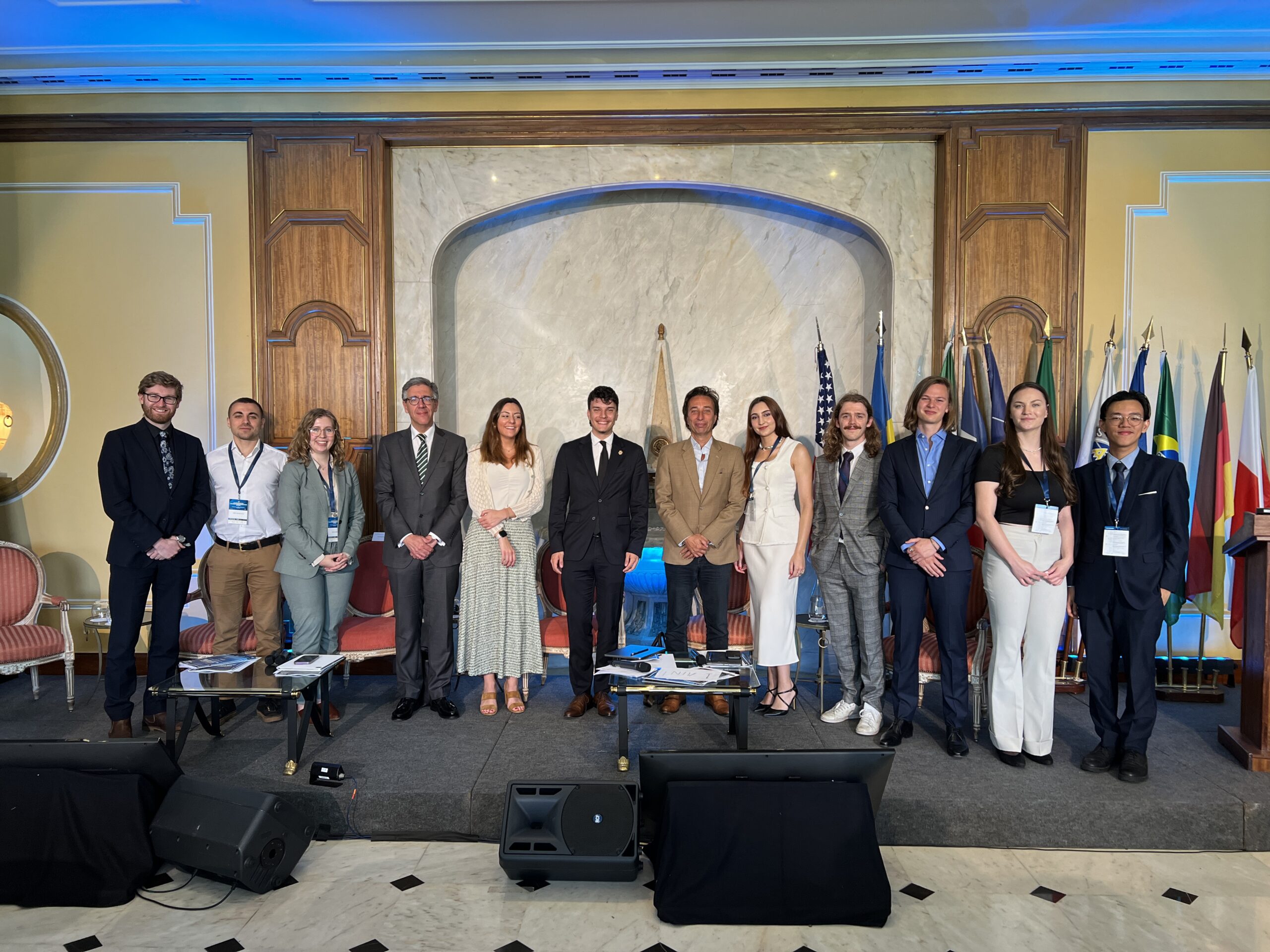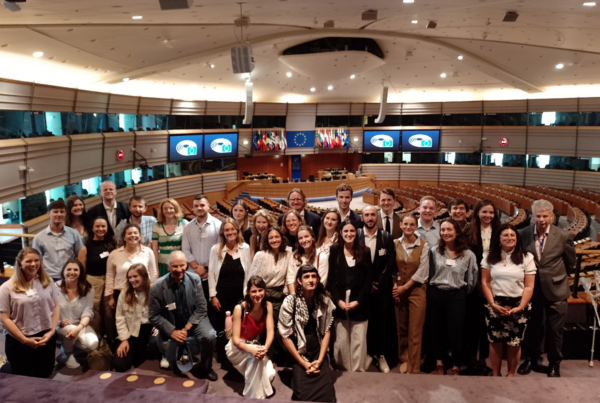
The Europaeum Debate
“The future of Democracy depends on the capacity of Europe and the USA to build a coalition with the Global South”
5 June 2023 | Palácio Estoril, Estoril, Portugal
This year’s Europaeum Debate at the Estoril Political Forum built on the event’s overarching themes: commemorating the 50th anniversary of Portugal’s “Carnation Revolution” and evaluating the future of democracy’s “third wave”.
Samuel P. Huntington’s famous thesis, adumbrated in his 1991 book The Third Wave: Democratization in the Late Twentieth Century posited that Portugal’s 1974 revolution had catalysed a third wave of some form of democratic transition across more than 60 countries throughout Europe, Latin America, Asia, and Africa. The forum asked how secure that process is from reversal and what can be done to prevent it. Speakers discussed geopolitical specificities in Africa, the Middle East, India and the United States, as well as Portugal and the Lusophone world. The Europaeum’s selected students – one team drawn from across the network, the other representing the Jagiellonian University in Krakow – focused on the question of international cooperation, specifically between richer and developing countries (the problematically labelled “Global North” and “Global South”).
Opening the debate for the proposition, Catherine Wood (Leiden) emphasised the idealistic case for coalition. Democracies are themselves, by their very nature, coalitions of democrats who, despite their political differences, work together to protect democracy by sidelining authoritarian forces. What could be more natural or appropriate than that democratic states do the same to reinforce a democratic and rules based international order?
Juliána Fekiačová (Jagiellonian) countered this for the opposition with an argument based in political realism. The problem facing democracies today, she said, was that they have lost prestige. This is why the democratic “third wave” has stalled. What is needed is less talking about cooperation and more getting our own houses in order. Until democracy is seen to be the superior political system, generating better returns for citizens in terms of economic prospects and prosperity, we will struggle to convince wavering elites around the world to throw their lot in with liberty and freedom rather than the Russians or Chinese.
Xabier Lizarraga Arriola (Complutense) rejected this for the proposition, advancing his own “realist” argument: only by pragmatic cooperation amongst democracies, including the pooling of resources and influence, do we stand any chance of matching China or other hostile actors. If we all act alone, we will fall divided and we will waste what influence we have.
Muhammad Utama (Jagiellonian) rebutted this for the opposition with a powerful defence of the idea that the problem was more complicated than such neo-conservative or neo-liberal positions allow for. There are many models for democracy, and many ways in which democratic elements can be injected into a society. It is highly arrogant for rich Western nations to presume that theirs is the best form of consensus or consent-based politics and by trying to lead the mis-named “Global South” in this they risk alienating key actors and doing more harm than good.
Matthew Haji-Michael (CEU) and Stefano Falchi (Jagiellonian) offered briefer third speeches for and against the motion, both rebutting key claims made by their opponents. A lively half hour of audience interventions then followed led first by two UCP professors, José Miguel Sardica and Miguel Morado, who provided expert commentary on the students’ arguments.
Important questions asked at this stage included where the military and the use of force were, or should be, in the discussion, what was the Plan B if cooperation did not work, and where marginal states that were Western but not Europe or the USA (e.g. Japan, South Korea, India or Australia) were in this paradigm.
Before the debate began the audience voted for and against the motion. After the conclusion of the audience participation they voted again. The second vote saw a small but significant move in favour of the motion from 22/15 to 40/23 votes. The motion was therefore carried.
Student Catherine Wood (Leiden) writes:
“Participating in the debate at the Estoril Political Forum was a wonderful experience. The debate itself provided an opportunity to engage with a topic from different angles and work on my public speaking skills. But what made Estoril most memorable for me was the chance to meet people from so many areas of policymaking and academia, as well as students with similar interests from around Europe. Especially unique was the opportunity to engage with those who brought different perspectives than my own, and to have thought-provoking discussions with them between sessions and during meals.”
Student Matthew Haji-Michael (CEU) writes:
“I had a truly excellent time attending the recent Estoril Political Forum with the Europeaum. The opportunity this gave me to practice my public speaking and to network with major figures has been incredible. Organisation of our attendance and accommodation was brilliant and I also had the chance to attend a number of very interesting talks, as well as some great social events. In short, I wouldn’t hesitate to recommend the Europeaum’s events to anyone considering attending in the future.”
Student Xabier Lizarraga Arriola (Complutense) writes:
“I recently participated in the Estoril Policy Forum with Europaeum. It was an amazing and educational experience where I had the opportunity to meet some very interesting people to chat and debate about the political future of Europe, the US and the Global South. I strongly encourage all those interested in political and economic issues to visit their web page and participate in the events in which Europaeum collaborates.”
The Europaeum congratulates all the speakers, as well as Job de Jager (Jagiellonian), Cristian Bancu (UCP), and Sara Napoleão (UCP) who kept records and assisted the speakers in their preparations. The Europaeum also thanks the UCP expert discussants for their excellent comments, our host Professor Mónica Dias, Professor João Carlos Espada, Professor Rita Seabra Brito and the rest of the organising team of the Estoril Political Forum, and Dr Lucja Piekarska-Duraj, the Jagiellonian University’s debate co-ordinator.



